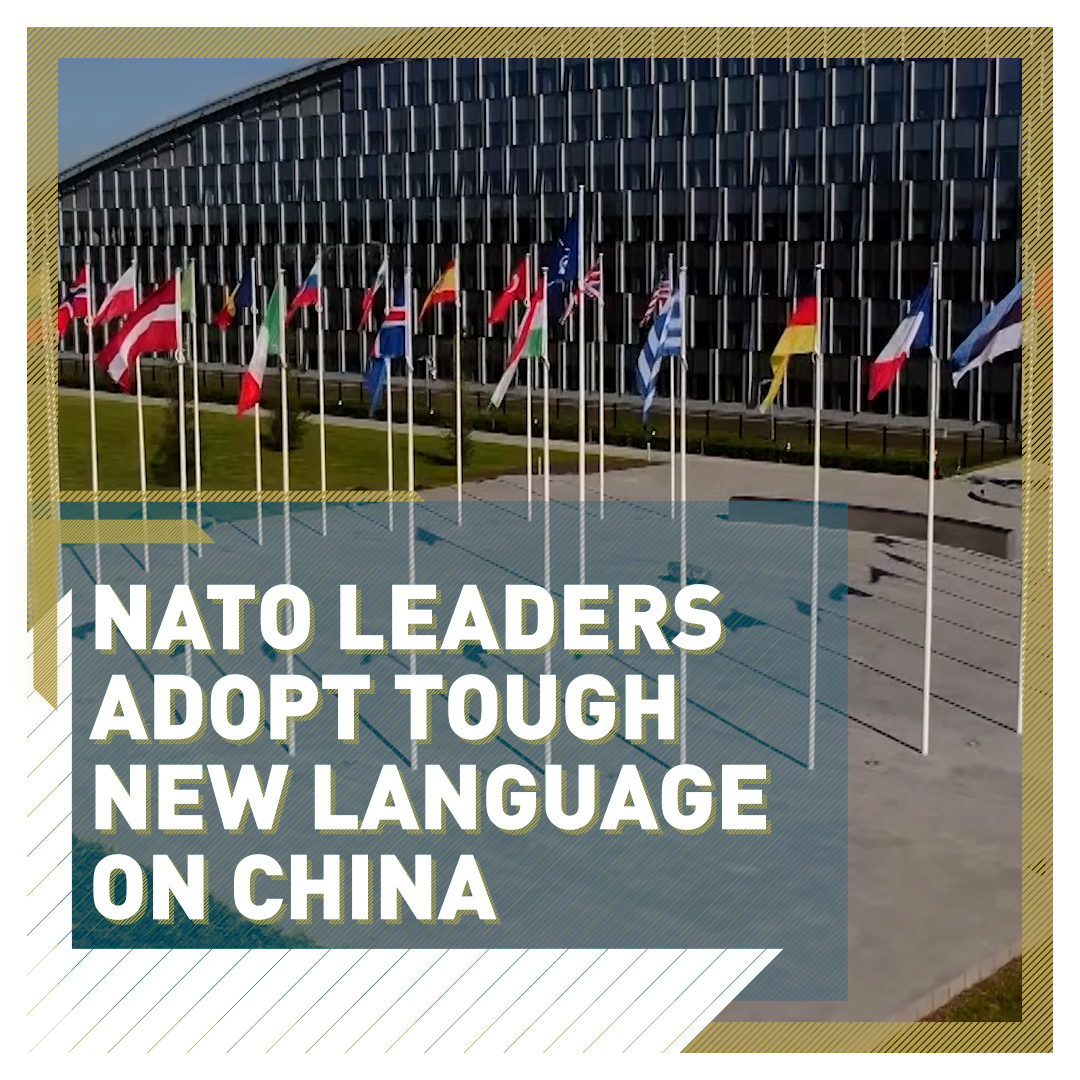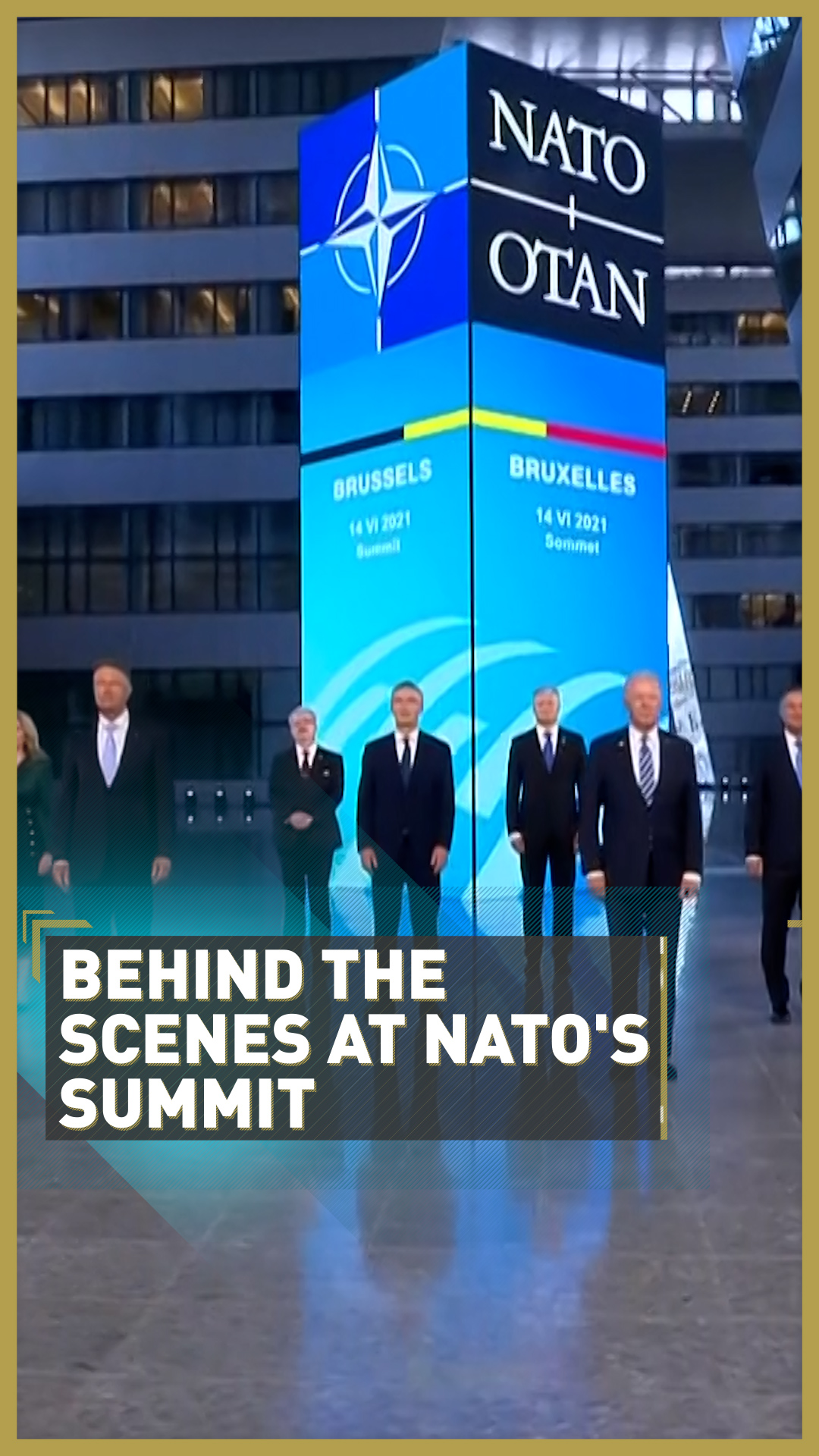02:21

NATO (The North Atlantic Treaty Organization) leaders described China's military behavior as a "systemic challenge," following a summit in Brussels. They for the first time concluded that China's growing military capabilities and international policies can "present challenges."
China was singled out 10 times in the concluding communique – a sharp escalation since the last statement, which dedicated just one sentence to the rising global power.
"China's stated ambitions and assertive behavior present systemic challenges to the rules-based international order and to areas relevant to alliance security," NATO leaders said after their meeting at the body's headquarters on Monday.
In response, China has pointed out that its spending on defense compared to gross domestic product (GDP) is lower than many NATO members'. Military spending accounts for 1.3 percent of GDP in China, which is lower than in the U.S., Greece, Croatia and the UK.
Ministry of Foreign Affairs Spokesperson Zhao Lijian said: "Engaging in 'small circles' and group politics, engaging in ideological sidelines and forcing other countries to choose sides between camps, goes against the historical trend of peace, development and cooperation, and is destined to be unpopular and unsuccessful."
It was Joe Biden's first summit as U.S. President with the 30-member Western military alliance. NATO Secretary General Jens Stoltenberg warned that China was "coming closer."
"We see them in cyberspace, we see China in Africa, in the Arctic but we also see China investing heavily in our own critical infrastructure and trying to control it," he told reporters.
Despite the tough talk, which will set the path for policy going forward, many NATO leaders stressed that they did not want a Cold War with China. Instead, they called for constructive dialogue with Beijing "where possible," which could include cooperation around arms control and climate change.
WATCH: TONI WATERMAN GOES BEHIND THE SCENES AT NATO HQ
03:15

Germany's Chancellor Angela Merkel, who steps down in September after 16 years leading her country, sounded a note of caution and urged her NATO counterparts to strike the proper balance.
"One can't just negate China, but I also think we shouldn't overrate it," Merkel said, following the summit. "We just need to find the right balance. China is our rival in many questions but also our partner in many aspects."
China is a key factor in the group's decision to ramp up NATO's budget, with new spending aimed at tackling next-generation threats such as cyberwarfare, disinformation and modern weapons. The only country talked about more than China was Russia. Stoltenberg described relations at their lowest point since the Cold War.
"Russia, according to the representatives that were here, sees NATO, not as a partner but as an adversary, which I think is a great pity more than 20 years after the Cold War ended," Merkel said.
The NATO summit was held just days before Biden is to hold talks with Russia's President Vladimir Putin in Geneva.
The international body also agreed to provide "transitional funding to ensure continued functioning of Hamid Karzai International Airport," in Afghanistan as both NATO and U.S. forces withdraw from the region after 20 years.
It also pledged to provide continued training and financial support for Afghan security forces.

